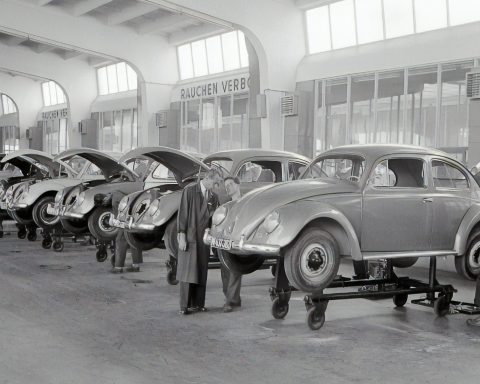
I am the worst type of car owner. I have never cleaned my car (I wait for the complementary clean following MOT). I don’t understand how they work. I know from the road works signs that I should check my tyres, fuel, and oil regularly, but I don’t. I am a bad car owner.
Instead I have AA membership.
So when a red warning light flashes up on the dashboard, I am alarmed but don’t panic. After a quick call to the garage I am informed it is likely the “alternator” and I should stop somewhere safe. I have no idea what an alternator is, but red means bad, so I stop. Thirty minutes later the AA man arrives (Tim). Within two minutes Tim has also diagnosed my alternator is not working. But what happens next is amazing.
Tim shows me where the alternator is, explains how it works, and how the engine makes electricity to charge the battery. With some gadgets he shows me how much electricity my car uses, and explains what will happen if I keep driving (abrupt halt in the middle of the road). He then outlines my options, the various risks, and the costs. All of a sudden I realise we are doing shared decision making. He is an expert. Within 10 minutes we have agreed a plan of action with him implicitly understanding my ideas, concerns, and expectations.
Tim agrees to change the alternator. Because I’m interested (and Tim likes talking) we chat whilst he works. I’m curious to discover whether he has had communication skills training (no), and how he knows what to tell people. He says he always gives an explanation to the customer. After a few sentences he can tell from the person’s eyes and body language whether they understand. If they don’t, he starts to find out about them (their job, their interests) and then modifies the explanation to fit their cultural context. The similarities in our jobs is clear, so I tell him what I do.
We get chatting about communication skills and general practice. He says he can normally spot GPs a mile off. He says most GPs talk at one level without any adjustment for the person in front of them, and this makes GPs hard to understand, inaccessible, and superior. The best GP he has had is a Polish GP who takes time to explain things, more importantly at a level he understands.
I wonder what else I could learn from the AA, and ask what GPs should do differently. He says we could start by addressing the small things, like running late. He tells me that the AA overestimate their time to arrival, specifically to ensure they arrive early. Arriving early gets the “consultation” off to the right start, and leaves the customer with a positive experience. I agree, Tim took thirty minutes to turn up, way beyond my expectations. He asks why we don’t run to time. I start to give a million excuses, the 10 min consultation, emergencies, workload, patients with multiple problems. But the reality is I routinely run 30 minutes late. If this is routine why not plan for it, put breaks in my surgery, and give patients a more accurate appointment time and better experience? It’s probably a combination of being seen to pull my weight and conform to peer standards. It’s definitely not because patients want 10 minute appointments and harassed clinicians.
I was left driving away reflecting on how often I modify my language for the patient in front of me, whether I should actually be modifying my practice for my patients, and how I can get an AA (wo)man to join our patient group.
Thanks to Tim Parrington for fixing my alternator and the stimulating discussion.








This is one of the most thought provoking articles I have read in the BJGP for some time. I think that we sometimes forget that consultation skills are a feature of many occupations and that we can learn a great deal from looking at how others manage this process. Good practice in one profession is transferable to another.